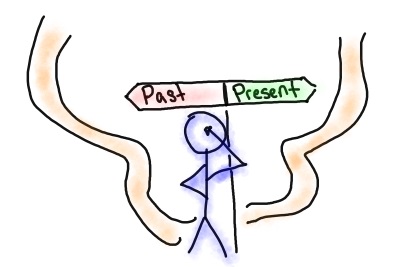(167 words, 39-second read)

When talking about writing, nouns, verbs, adverbs, propositions, and commas get a lot of play. Not so much for verb tenses.
Why it matters: According to Jonah Berger’s new book, Magic Words, the tense – past or present – can impact your persuasiveness.
After analyzing a million online reviews, Jonah’s team determined:
Past tense does us a couple of things:
- It tells us something was true at one point but doesn’t tell us if it is true now.
- It adds subjectivity because it’s based on an opinion at the moment.
Present tense gives us a different impression:
- It tells us something is still happening and will continue to happen.
- It removes subjectivity because it is actively happening.
In action 🎬:
- John played a good game. But will it happen again?
- John plays a good game. Suggesting it will happen again.
Bottom line: Writing in the present tense increases the chance of our audience reading our stuff.
Fun fact: This section of the book was about 1,200 words.
Another fun fact: The first draft was 200 words.